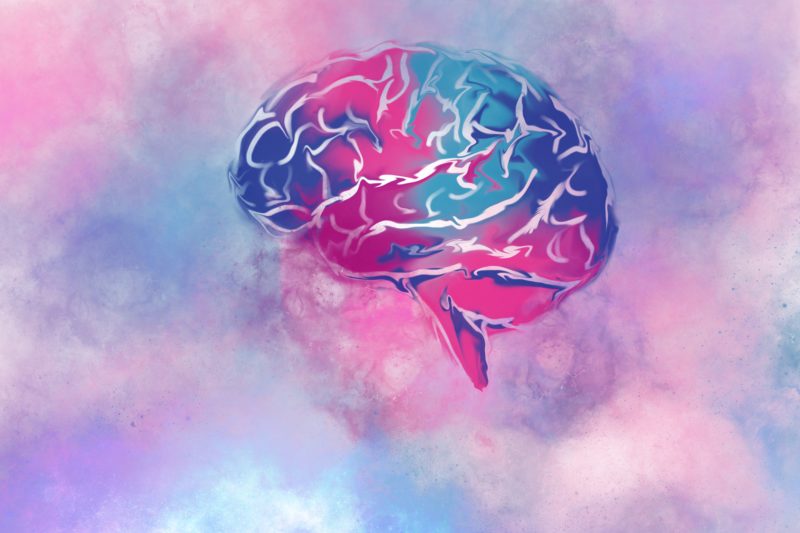Texas Veterans Desperate for Treatment Find Viable Alternative in Psychedelics
By Samuel Stark
Reporting Texas

Dallas resident Amber Capone, 42, was at an impasse about how to help her husband, Marcus Capone, 44, a retired Navy SEAL of 13 years. Marcus Capone served in the Iraq and Afghanistan wars and, like many combat veterans, was dealing with a mild traumatic brain injury and post-traumatic stress disorder.
Brain injuries and PTSD are part of the reason suicide rates are 1.5 times higher in veterans than non-veteran adults, according to the U.S. Department of Veteran Affairs.
Marcus Capone tried talk therapy and medication to no avail. If anything, the treatments worsened his condition, and Marcus turned to alcohol.
“I had a lot of hurt, sorrow and guilt,” Marcus Capone said. “Things I took on heavily from the loss of friends, things I may have done wrong and being away from my family.”
In fall 2017, the Capones heard of a veteran with similar ailments to Marcus who touted a life-saving treatment using the drug ibogaine — a psychoactive compound found in a rainforest shrub native to Africa. Ibogaine is illegal in the United States, so Marcus went to a clinic in Mexico to try the therapy.
Combat veterans around the nation and in Texas are turning to psychedelic drugs such as ibogaine, psilocybin, DMT and ketamine to combat PTSD, depression and anxiety. Meanwhile, Texas lawmakers are attempting to legitimize the therapies by facilitating clinical research into the drug’s effectiveness.
Marcus checked into the clinic and took an ibogaine pill. Shortly after he “went through a visual experience of (his) life from childhood all the way up to the present time,” he said.
“It showed me I could love again. I could have passion. I could be empathetic,” he said. “I’m on this constant hamster wheel of looking and searching. (I realized) I had everything I needed, a good life, a good wife and good kids.”
In February, State Rep. Alex Dominguez, D-Brownsville, drafted House Bill 1802, a measure that authorizes the study of certain psychedelic therapies in treating mental health conditions.
Before becoming a state representative, Dominguez worked as a prosecutor in Cameron County where he saw veterans charged for incidents related to substance abuse. He became impassioned to explore other options.
“For the last half decade or so other countries have been really ramping up through research into psychedelics. (Dominguez) saw these compounds were effective,” said Logan Davidson, legislative director for Dominguez.
A coalition of liberals and conservatives, including Dominguez and former Texas Gov. Rick Perry, came together to support the measure. The legislation passed and took effect in June.
Similar bills have been filed in Pennsylvania, New York, North Carolina and Michigan.
Dominguez is also a vocal supporter of a ketamine infusion therapy, another form of psychedelic therapy, pilot program in Travis County for veterans with PTSD. The lawmaker hopes to expand access to non-veterans. (The FDA approved a ketamine nasal spray to help people with treatment resistant depression in 2019.)
“There has been a long-standing need for additional effective treatments for treatment-resistant depression, a serious and life-threatening condition,” Dr. Tiffany Farchione, acting director of the Division of Psychiatry Products in the FDA’s Center for Drug Evaluation and Research, according to a FDA press release in March 2019.
Unlike ketamine, ibogaine and psilocybin are illegal in Texas under any circumstances.
“(Psilocybin) provides an opportunity to enhance the therapeutic process. It allows some people to see the world and themselves differently,” said Alan Davis, a Johns Hopkins University researcher said. “For some it allows them to heal and move forward in a really meaningful way.”
While shown to be effective, Davis said there is no way to predict how a patient will react to the therapy and that experiences can vary dramatically.
“We’ve had some people who experience bliss and euphoria … and others who experienced their own death and felt like they were being buried alive,” Davis said. “(It is) so important that these experiences are done in the context of a therapeutic and safe setting when the intention is for a therapeutic outcome.”
After his success with ibogaine therapy, Marcus Capone felt compelled to share his experience with the drug.
In December 2017, the Capones formed a non-profit organization called VETS — Veterans Exploring Treatment Solutions. The group funds trips for veterans to countries including Costa Rica, Jamaica, Mexico and Peru, where some psychedelic therapies are legal.
The group has funded 450 trips. Davis surveyed 65 of the veterans and found that more than 96% of them touted it as being “much better” than previous treatments they had tried.
During the majority of the trips, veterans participate in therapy using the drugs ibogaine, DMT and psilocybin. These substances are still classified as schedule one drugs by the Drug Enforcement Administration. Other schedule one drugs include crack cocaine and heroin.
The Capones don’t support complete decriminalization of all psychedelic therapy, but hope such treatments are legalized for veterans and others affected with mental health conditions.
“We’re trying to change the hearts and minds of conservative and military leaders. The decriminalization movement goes a little too far,” Amber Capone said.
“Our veterans are absolutely desperate; these therapies are incredibly effective,” Amber Capone said. “They deserve it.”